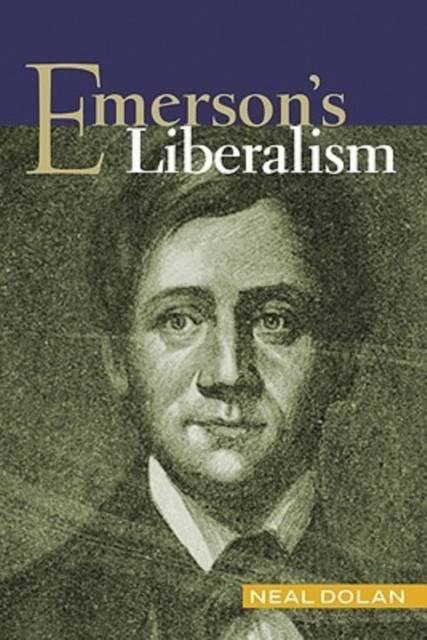
- Afhalen na 1 uur in een winkel met voorraad
- Gratis thuislevering in België vanaf € 30
- Ruim aanbod met 7 miljoen producten
- Afhalen na 1 uur in een winkel met voorraad
- Gratis thuislevering in België vanaf € 30
- Ruim aanbod met 7 miljoen producten
Zoeken
€ 31,45
+ 62 punten
Omschrijving
Emerson's Liberalism explains why Ralph Waldo Emerson has been and remains the central literary voice of American culture: he gave ever-fresh and lasting expression to its most fundamental and widely shared liberal values. Liberalism, after all, is more than a political philosophy: it is a form of civilization, a set of values, a culture, a way of representing and living in the world. This book makes explicit what has long been implicit in America's embrace of Emerson.
Neal Dolan offers the first comprehensive and historically informed exposition of all of Ralph Waldo Emerson's writings as a contribution to the theory and practice of liberal culture. Rather than projecting twentieth-century viewpoints onto the past, he restores Emerson's great body of work to the classical liberal contexts that most decisively shaped its general political-cultural outlook--the libertarian-liberalism of John Locke, the Scottish Enlightenment, the American founders, and the American Whigs.
In addition to in-depth consideration of Emerson's journals and lectures, Dolan provides original commentary on many of Emerson's most celebrated published works, including Nature, the "Divinity School Address," "History," "Compensation," "Experience," the political addresses of the early 1840s, "An Address . . . on . . . The Emancipation of the Negroes in the British West Indies," Representative Men, English Traits, and The Conduct of Life. He considers Emerson's distinctive elaborations of foundational liberal values--progress, reason, work, property, limited government, rights, civil society, liberty, commerce, and empiricism. And he argues that Emerson's ideas are a morally bracing and spiritually inspiring resource for the ongoing sustenance of American culture and civilization, reminding us of the depth, breadth, and strength of our common liberal inheritance.
Neal Dolan offers the first comprehensive and historically informed exposition of all of Ralph Waldo Emerson's writings as a contribution to the theory and practice of liberal culture. Rather than projecting twentieth-century viewpoints onto the past, he restores Emerson's great body of work to the classical liberal contexts that most decisively shaped its general political-cultural outlook--the libertarian-liberalism of John Locke, the Scottish Enlightenment, the American founders, and the American Whigs.
In addition to in-depth consideration of Emerson's journals and lectures, Dolan provides original commentary on many of Emerson's most celebrated published works, including Nature, the "Divinity School Address," "History," "Compensation," "Experience," the political addresses of the early 1840s, "An Address . . . on . . . The Emancipation of the Negroes in the British West Indies," Representative Men, English Traits, and The Conduct of Life. He considers Emerson's distinctive elaborations of foundational liberal values--progress, reason, work, property, limited government, rights, civil society, liberty, commerce, and empiricism. And he argues that Emerson's ideas are a morally bracing and spiritually inspiring resource for the ongoing sustenance of American culture and civilization, reminding us of the depth, breadth, and strength of our common liberal inheritance.
Specificaties
Betrokkenen
- Auteur(s):
- Uitgeverij:
Inhoud
- Aantal bladzijden:
- 360
- Taal:
- Engels
- Reeks:
Eigenschappen
- Productcode (EAN):
- 9780299228040
- Verschijningsdatum:
- 1/05/2009
- Uitvoering:
- Paperback
- Formaat:
- Trade paperback (VS)
- Afmetingen:
- 159 mm x 229 mm
- Gewicht:
- 439 g

Alleen bij Standaard Boekhandel
+ 62 punten op je klantenkaart van Standaard Boekhandel
Beoordelingen
We publiceren alleen reviews die voldoen aan de voorwaarden voor reviews. Bekijk onze voorwaarden voor reviews.








